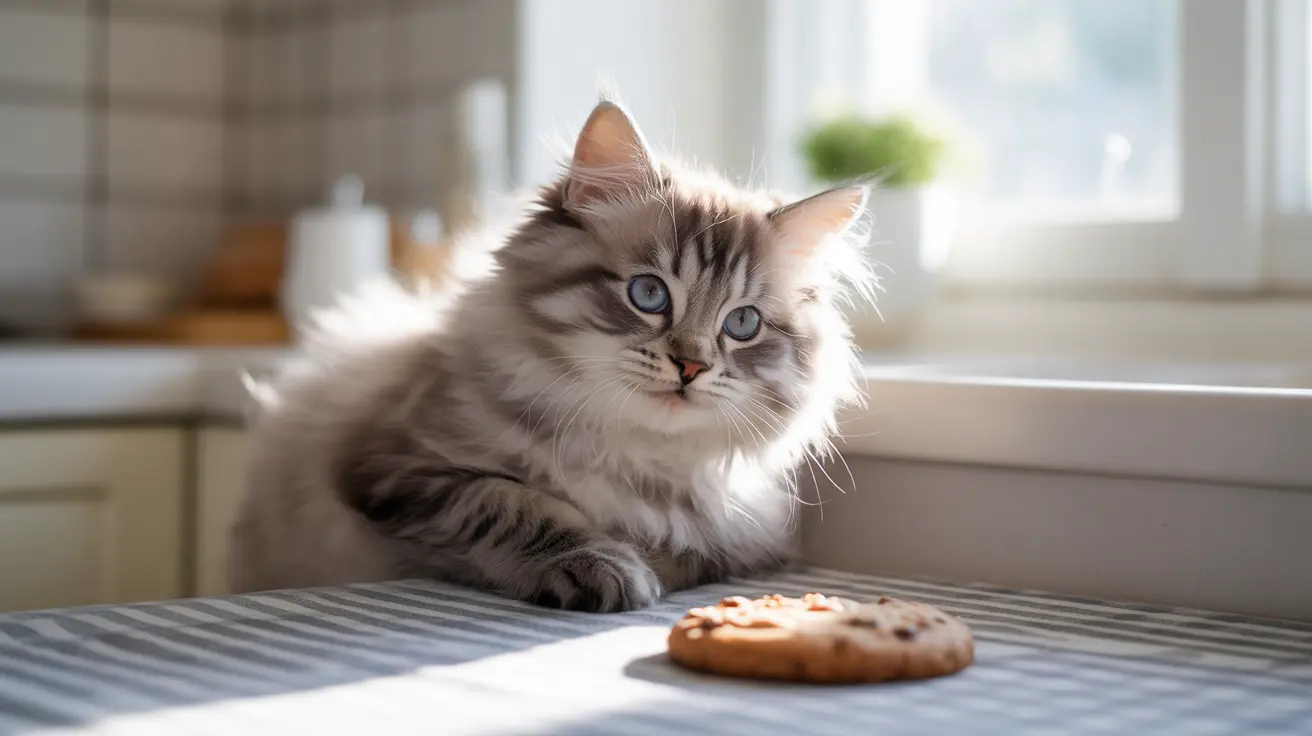As pet owners, we often wonder about sharing our favorite treats with our feline friends. When it comes to cookies, however, the answer is clear: cats should not eat cookies made for human consumption. These sweet treats can pose serious health risks to your furry companion, and understanding why is crucial for responsible pet ownership.
In this comprehensive guide, we'll explore why cookies are unsuitable for cats, what risks they pose, and what safer alternatives you can offer your pet instead.
Why Cookies Are Dangerous for Cats
Cats are obligate carnivores, which means their bodies are designed to process and utilize nutrients primarily from animal-based proteins. Their digestive systems aren't equipped to handle the ingredients commonly found in cookies, making these treats potentially harmful.
The Problem with Cookie Ingredients
Most cookies contain several ingredients that can be dangerous or even toxic to cats:
- Chocolate (contains theobromine and caffeine)
- Raisins and grapes (can cause kidney failure)
- Artificial sweeteners like xylitol
- Nuts (difficult to digest and potentially toxic)
- High amounts of sugar and fat
- Spices like cinnamon and nutmeg
Health Risks of Feeding Cookies to Cats
When cats consume cookies, they may experience various health issues:
- Immediate digestive upset (vomiting and diarrhea)
- Weight gain and obesity
- Diabetes
- Dental problems
- Pancreatitis
- Toxicity (from specific ingredients)
Understanding Your Cat's Dietary Needs
Cats have evolved to thrive on a meat-based diet and lack the ability to taste sweetness. Their bodies don't require carbohydrates found in cookies, and these empty calories can lead to nutritional imbalances and health problems over time.
Safe Alternatives to Cookies for Cats
Instead of sharing human cookies with your cat, consider these safer options:
- Commercial cat treats specifically formulated for felines
- Small pieces of cooked, plain meat
- Veterinarian-approved dental treats
- Cat-specific recipe treats made with appropriate ingredients
Guidelines for Treating Your Cat
When offering treats to your cat:
- Limit treats to 10% of their daily caloric intake
- Choose options specifically made for cats
- Avoid human food treats entirely
- Always have fresh water available
What to Do If Your Cat Eats Cookies
If your cat has consumed cookies, take these steps:
- Identify what ingredients were in the cookie
- Contact your veterinarian immediately
- Watch for signs of distress
- Follow professional medical advice
Frequently Asked Questions
Can cats safely eat cookies made for humans?
No, cats should not eat cookies made for humans. These treats contain ingredients that can be toxic or harmful to cats and provide no nutritional value for their carnivorous dietary needs.
What common cookie ingredients are toxic or harmful to cats?
Chocolate, raisins, xylitol, nuts, and certain spices are toxic or harmful to cats. Additionally, high sugar and fat content can lead to obesity and other health issues.
What health problems can cats develop from eating cookies?
Cats can develop various health problems from eating cookies, including obesity, diabetes, dental issues, pancreatitis, and potential toxicity from specific ingredients.
Are there cat-friendly cookie recipes or treats I can safely give my cat?
Yes, there are specially formulated cat treats and veterinarian-approved recipes designed specifically for felines. These treats contain appropriate ingredients and nutrients suitable for cats.
What should I do if my cat accidentally eats a cookie containing chocolate or raisins?
If your cat consumes cookies containing toxic ingredients like chocolate or raisins, contact your veterinarian immediately. Note the ingredients and amount consumed, and watch for signs of distress while seeking professional medical attention.
Remember, while it might be tempting to share your treats with your feline friend, keeping them safe means sticking to food and treats specifically designed for cats. Your pet's health and well-being depend on making informed choices about their diet.






